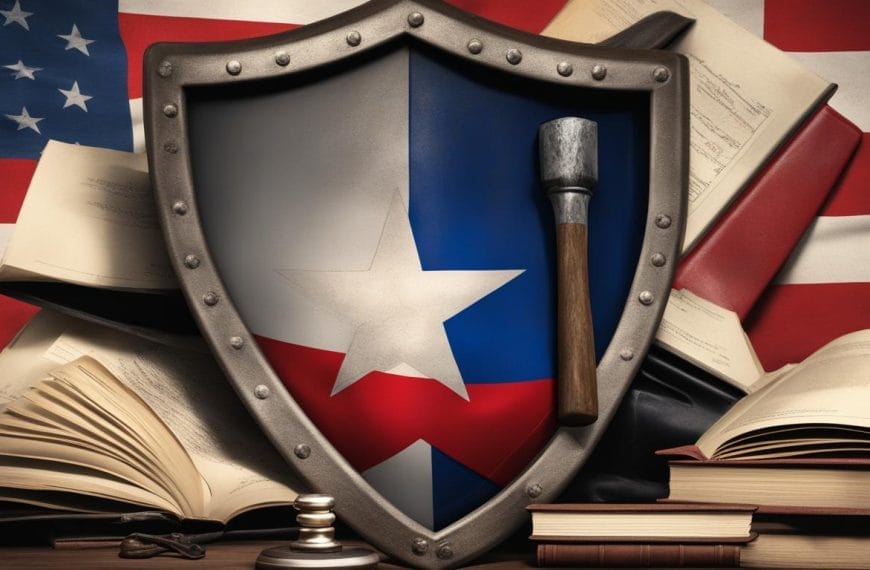Assault with a deadly weapon is a serious offense that carries significant legal consequences. In most states, this crime is classified as a felony, specifically a degree felony. Being charged with assault with a deadly weapon can result in severe penalties and long-term ramifications.
When it comes to the classification of felonies, different degrees indicate the severity of the offense. The degree of felony for assault with a deadly weapon varies depending on the jurisdiction, with some states categorizing it as a second-degree felony, while others may consider it a different degree.
The use of a deadly weapon during an assault significantly increases the risk of harm to the victim. For this reason, prosecutors take such cases very seriously, seeking to hold the perpetrators accountable for their actions.
When facing felony charges for assault with a deadly weapon, it is crucial to understand the implications and potential consequences. Hiring an experienced criminal defense attorney is essential to navigate the legal process, protect your rights, and mount a strong defense.
What is Assault with a Deadly Weapon?
Assault with a deadly weapon, often abbreviated as ADW, refers to a criminal offense where an attacker uses or attempts to use a physical object capable of causing serious bodily injury or death in conjunction with a physical attack.
A deadly weapon encompasses a wide range of objects that have the potential to inflict mortal or great bodily harm. Some states classify certain objects as “deadly weapons per se,” while others determine the classification based on how the defendant used the object during the assault.
Assault with a deadly weapon is a severe offense due to the heightened risk it poses to the victim’s life and well-being. The presence of a deadly weapon significantly increases the potential for serious harm, which leads to harsh penalties for individuals convicted of this crime.
Examples of Deadly Weapons
- A firearm, such as a handgun, rifle, or shotgun
- A knife or other bladed weapon
- Explosive devices or materials
- Any object used in a manner that can cause severe injury, such as a baseball bat, hammer, or crowbar
- Chemical substances or toxins
It’s important to note that the classification of an object as a deadly weapon may vary from state to state, with some jurisdictions considering additional items based on their potential to cause harm.
In some cases, even the use of non-traditional objects, such as a vehicle or a dog trained to attack, can be considered assault with a deadly weapon if it can be established that the object was used as a means to cause significant harm.
Next, we will explore the felony classification of assault with a deadly weapon and the potential penalties associated with this offense.
Is Assault with a Deadly Weapon a Felony?
Assault with a deadly weapon is a serious crime that carries significant legal consequences. Due to the increased risk of death or serious harm posed by a deadly weapon, most states classify assault with a deadly weapon as a felony offense. This felony classification reflects the severity of the crime and highlights the potential danger associated with the use of a lethal weapon in an assault.
Defendants charged with assault with a deadly weapon may face the possibility of imprisonment in a state prison. The specific penalties vary by jurisdiction, but the potential consequences can range from several years of incarceration to even decades behind bars. Additionally, fines and other legal implications may be imposed as part of the sentencing process.
The felony classification emphasizes society’s recognition of the gravity of this offense. By designating assault with a deadly weapon as a felony, the legal system sends a clear message that such acts of violence are unacceptable and will be met with severe punishment. This classification serves as a deterrent to potential offenders and reinforces the need to prioritize public safety.
| Felony Classification | Possible Penalties |
|---|---|
| First-degree felony | Long prison sentence, often ranging from 10 years to life imprisonment |
| Second-degree felony | Imprisonment typically ranging from 2 to 20 years and substantial fines |
| Third-degree felony | Incarceration ranging from 2 to 10 years and significant fines |
| Fourth-degree felony | Imprisonment ranging from 6 months to 2 years and substantial fines |
It is essential to note that each state may have its own specific felony classification and corresponding penalties for assault with a deadly weapon. The severity of the penalties may also be influenced by various factors, including the type of weapon used, the intent behind the assault, the extent of the victim’s injuries, and any previous criminal history of the defendant.
Given the severe consequences associated with assault with a deadly weapon, it is crucial for individuals facing such charges to seek the representation of an experienced criminal defense attorney. A skilled attorney can navigate the complexities of the legal system, build a strong defense strategy, and strive to mitigate the potential penalties or secure a favorable outcome for the defendant.
Penalties for Assault With a Deadly Weapon
The penalties for assault with a deadly weapon can vary significantly depending on the specific circumstances surrounding the assault. Several factors come into play when determining the severity of the penalties, including the type of weapon used, the extent of the victim’s injuries, and whether the victim falls under a protected class.
Defendants convicted of assault with a deadly weapon may face imprisonment ranging from a few years to several decades. Let’s take a closer look at the possible penalties for this offense:
| Factors | Penalties |
|---|---|
| Type of weapon used | The type of weapon used during the assault can significantly impact the severity of the penalties. Certain weapons may be classified as inherently more dangerous and result in harsher punishments. |
| Extent of the victim’s injuries | The severity of the victim’s injuries can directly influence the length of the imposed sentence. More severe injuries may result in longer prison terms. |
| Victim falls under a protected class | If the victim falls under a protected class, such as a law enforcement officer or a vulnerable individual, the penalties for the assault may be more severe. |
It is important to consult with a knowledgeable criminal defense attorney to understand the specific assault with a deadly weapon penalties in your jurisdiction. They can provide guidance on building a strong defense strategy and potentially reducing the severity of the penalties.
Defenses for Assault With a Deadly Weapon
Defendants charged with assault with a deadly weapon have several defenses available, including:
- Mistaken identity
- Self-defense
- Defense of others
- Lack of intent
These defense strategies can be crucial in building a case to protect the defendant’s rights and minimize the potential consequences. However, navigating the legal complexities of assault with a deadly weapon charges requires the expertise of a skilled criminal defense attorney.
A criminal defense attorney specializing in assault with a deadly weapon cases can evaluate the unique circumstances of the assault and determine the most appropriate defense strategy. They will work diligently to protect the defendant’s rights and advocate for the best possible outcome.
By leveraging their extensive knowledge of assault with deadly weapon defenses and the intricacies of the legal system, criminal defense attorneys play a vital role in safeguarding their clients’ interests.
Defendants facing assault with a deadly weapon charges should seek experienced legal representation to ensure their defense is robust and effective.
Classification and Penalties in Texas
When it comes to assault with a deadly weapon in Texas, the consequences can be severe. In this state, such offenses are classified as second-degree felonies. The use or exhibition of a deadly weapon during the commission of the assault can lead to enhanced charges and penalties for the offender.
Those convicted of aggravated assault with a deadly weapon in Texas may face imprisonment ranging from 2 to 20 years. Additionally, they could be subject to a fine of up to $10,000.
This table provides a summary of the classification and penalties for assault with a deadly weapon in Texas:
| Offense | Classification | Penalties |
|---|---|---|
| Aggravated Assault with a Deadly Weapon | Second-Degree Felony | Imprisonment: 2 to 20 years Fine: Up to $10,000 |
Understanding the gravity of assault with a deadly weapon and the potential felony charges can help individuals comprehend the serious nature of these offenses. It is crucial to consult with experienced criminal defense attorneys in Texas to navigate the legal process and mount a strong defense.
Conclusion
Assault with a deadly weapon is a serious offense that can result in criminal charges, felony convictions, and significant penalties. The severity of the offense, including the degree of felony and associated penalties, varies by state and depends on the specific circumstances of the assault. It is vital for individuals facing charges related to assault with a deadly weapon to seek immediate legal counsel from a knowledgeable criminal defense attorney.
A conviction for assault with a deadly weapon can have lasting consequences, including imprisonment and a permanent criminal record. A skilled defense attorney will assess the details of the case to identify potential defenses and build a strong legal strategy. Defense strategies may include presenting evidence of mistaken identity, asserting self-defense, or challenging the prosecution’s evidence of intent.
Protecting one’s rights and mounting a robust defense is crucial when facing assault with a deadly weapon charges. A criminal defense attorney with experience in this area of law can provide valuable guidance, protecting the defendant’s interests throughout the legal process. If you or someone you know is facing charges related to assault with a deadly weapon, do not hesitate to consult with a qualified attorney to ensure the best possible outcome.













